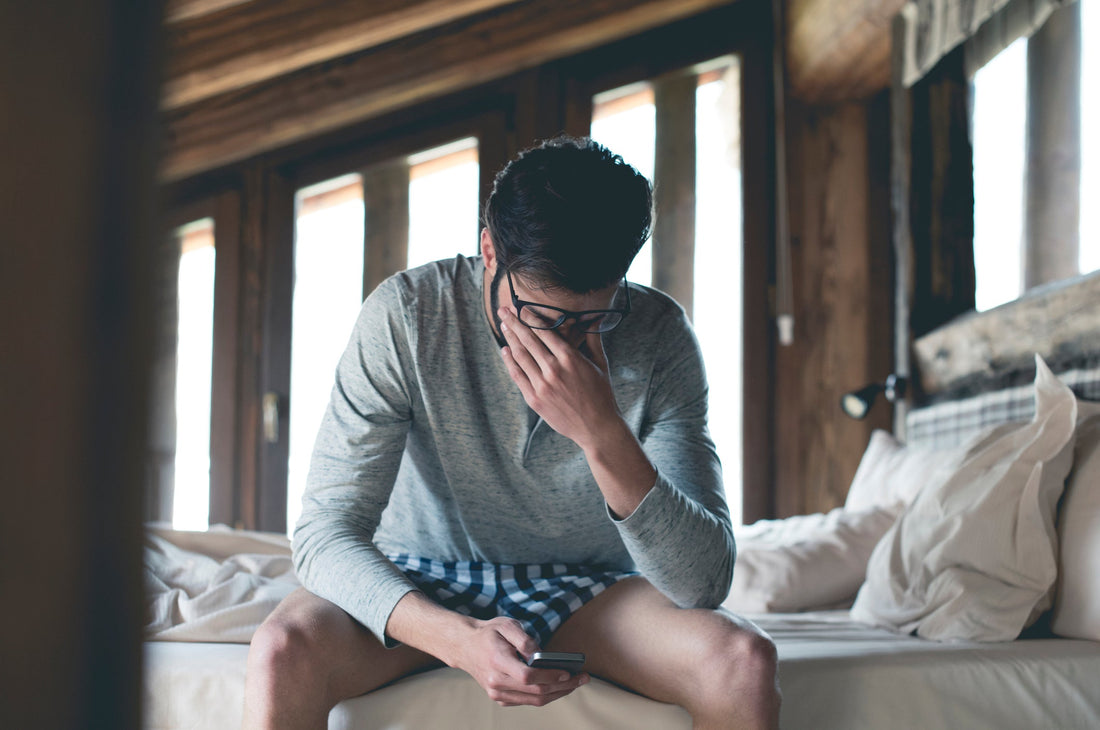Read Time: 4 min | Categories: Mental Health and Sleep
Is 6 Hours of Sleep Enough?
Maxine Fidler, ND
Share this article
The short answer is no.
Who hasn’t spent a few more hours in the day getting things done at work or around their home, or connecting with friends, only to find their activities have cut into their regular bedtime hour? Read on to find out how much sleep is enough, what you lose when you cut back on sleep, and what you gain by making sleep a priority!
Who hasn’t wished for more hours in a day? With work and family responsibilities, it is a common desire. Does it really work, though? Unfortunately, sleep is what often suffers, and more waking hours do not necessarily equal increased productivity.
Table of Contents
- How many hours is “enough” sleep?
- What happens if we don’t get enough sleep?
- Benefits of getting enough sleep
- Tips to consider when you’re not getting enough sleep
How many hours is “enough” sleep?
How much sleep do adults need per night? Canadian and U.S. guidelines recommend 7–9 hours of high-quality sleep for adults and 7–8 hours for older adults. [1, 2]
What happens if we don’t get enough sleep?
When we consistently sleep less than our body needs, we build up a sleep debt that significantly affects our performance. In fact, only one hour of sleep debt (one hour less than our optimal sleep pattern) can take up to four days of recovery. We’ve provided a few summaries of studies done on sleep debt and its impact on the body.
It’s hard to concentrate and remember things
Just 15 minutes of sleep debt negatively affects next-day cognitive performance, including executive function, sustained attention, and long-term memory. [3,4] The good news is that once we catch up on sleep, we regain the benefits of sleep, such as improved blood sugar balance and how we handle stress. [5]
Sleeping too little is almost as bad as not sleeping at all
In a clinical trial including 48 healthy adults ages 21–38, participants were randomly assigned to four, six, or eight hours of sleep per night for two weeks. Participants sleeping only four or six hours per night over the 14 days experienced a decrease in cognitive performance, including difficulty concentrating and decreased recall equal to two consecutive sleepless nights. [6] Losing a little sleep here and there can and does add up.
Sleep loss isn’t sexy
Sleep loss has negative effects beyond cognitive performance. One clinical trial showed that sleep deprivation could affect immunity, with people sleeping six or fewer hours per night at a significantly greater risk of developing the common cold. [7] Sleep loss may even interfere with your sex life; it can lower libido in women and contribute to erectile dysfunction in men. [8,9] It may also make you irritable. [10]
We’ve talked about immediate consequences; what about long-term ones?
Getting enough sleep is even more important as we get older, as it decreases the risk of chronic disease. People sleeping only 5–7 hours per night have an increased risk of developing several chronic conditions in middle age, including hypertension, kidney disease, high blood sugar, and others. [11]
Your age, physical fitness, lifestyle, and overall health may also contribute to how much lack of sleep affects you. While guidelines are developed to apply to most people, everyone is different, and you may find that your sleep needs and the consequences of not meeting them change over time.
Benefits of getting enough sleep
Sleeping the recommended 7–9 hours per night has profound health benefits. The benefits of getting enough sleep include enhanced brain function, improved immunity, and better overall health. Motivation, mood, focus, and recall all improve. And as we get older, getting enough sleep is even more important; it decreases the risk of chronic disease. People sleeping only 5–7 hours per night have an increased risk of developing several chronic conditions in middle age, including hypertension, kidney disease, high blood sugar, and others. [8]
Tips to consider when you’re not getting enough sleep
- Keep to a regular bedtime, even on the weekends
- Manage your stress, as this can help promote ease in falling asleep
- Avoid caffeine in the afternoon, as it may interfere with getting to sleep at night
- If you must nap during the day, nap for no longer than 90 minutes, as daytime naps may worsen the problem by delaying bedtime
- Keep your bedroom for sleep and sex; work-related tasks and leisure time are better spent in other locations
- Avoid heavy meals close to bedtime
- Keep the bedroom dark, cool, and comfortable
- Try to avoid screens within 30 minutes of sleep, as the blue light can interfere with natural melatonin secretion
- Sleep supplements may help, especially if you’re stressed – you can read more about this here
